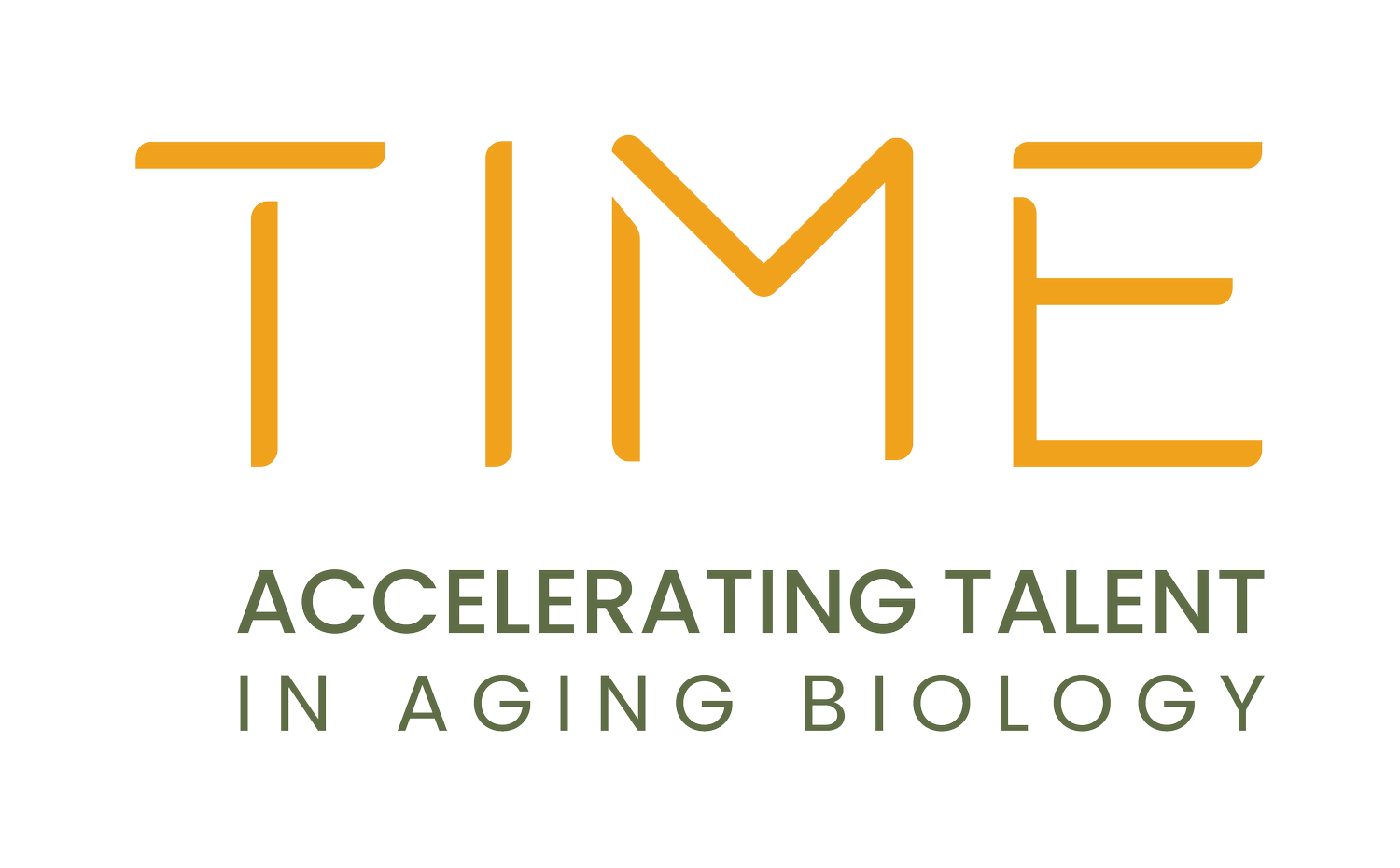Moments in TIME: Fellows Shaping the Future of Aging - Alyson Harvey
Alyson Harvey has always been drawn to big, bold questions in science, and her work in aging biology reflects that ambition. As a Harvard undergraduate studying Chemical and Physical Biology, Alyson is investigating how aging contributes to motor neuron disease development, aiming to demonstrate the potential of aging-targeted therapeutics to both treat and prevent chronic disease. Beyond the lab, Alyson is deeply committed to fostering collaboration and expanding opportunities for undergraduates in aging research. Alyson is a connector at heart, co-founding the Aging Initiative to help undergraduates access opportunities in aging research and fostering interdisciplinary collaboration along the way. Through the TIME Fellowship, she’s found a community that mirrors her drive to think big, act boldly, and reimagine the future of health.
Courtney: Hi Alyson! Thanks for taking the time to chat. Can you tell us about what you’re currently working on?
Alyson: Of course! My current project investigates the relationship between aging and motor neuron disease development, particularly in the context of genetic predisposition. Findings seek to substantiate the value of aging-targeted therapeutics to reverse motor neuron disease progression and/or prevent its development.
Courtney: That’s such an important area of focus. Why do you think this work matters so much, both for aging biology and beyond?
Alyson: This work evaluates the promise of traditional aging therapeutics to prevent and treat chronic disease, supporting the primacy of the geroscience hypothesis. These efforts pave the way for regulatory changes which focus resources on aging research as the core target in the eradication of chronic disease.
Courtney: It’s clear that your work has the potential to drive big changes. What’s your long-term vision for your contributions to aging biology?
Alyson: Broadly, I hope to continue building cool things! More specifically, I want to see aging research fully embraced as the key to addressing chronic disease and improving healthspan.
Courtney: I love that forward-looking optimism. Let’s take a step back—what inspired you to pursue a career in aging biology in the first place?
Alyson: I, like so many others, was unsatisfied with available systems to quell existential dread. Extensions of human lifespans produced through aging research buy time for us to further extend human lifespans, which buys time for us to further extend human lifespans, and so on…
Courtney: That’s such a unique perspective. It must have been a challenging field to break into as an undergraduate. How did you navigate those challenges?
Alyson: The lack of undergraduates in aging research, combined with the enterprising nature of the field, made it feel isolating to break into. The relationships I built in the TIME Fellowship allowed me to appreciate that this was actually a shared experience. Having that solidarity has been invigorating in my development as an aging researcher.
Courtney: It’s amazing how much community can make a difference. Speaking of community, you’ve clearly made meaningful connections through the TIME Fellowship. Can you share one that stands out?
Alyson: Absolutely! In July 2023, I co-founded an organization focused on connecting Harvard undergraduates (and undergraduates from nearby institutions) with opportunities in aging research. While recruiting talent for biomedical research was always a goal, we also sought to emphasize the importance of interdisciplinary collaboration. Sean Simonini, a fellow Fellow, soon joined us in the Aging Initiative to head up our collaborations in aging policy work. Despite the Initiative’s unofficial home at Harvard, the TIME Fellowship connected us with Sean – a student at UMass Lowell. I am so grateful to TIME for this connection, and to Sean for all he’s done to advance the Initiative’s mission!
Courtney: That’s such an incredible example of collaboration. Finally, why should someone who’s considering applying for the TIME Fellowship take the leap?
Alyson:The mentorship and camaraderie provided by my experience as a TIME Fellow have been invaluable in my intellectual and personal development. The Fellowship’s organizers understand the importance of maximizing connection amongst Fellows in order to contribute maximally to their intellectual and personal outcomes. I am confident that, as in my own cohort, future cohorts will be composed of exceptional humans; and that their shared experiences in the Fellowship will afford them transformative growth at a critical juncture in their lives.



